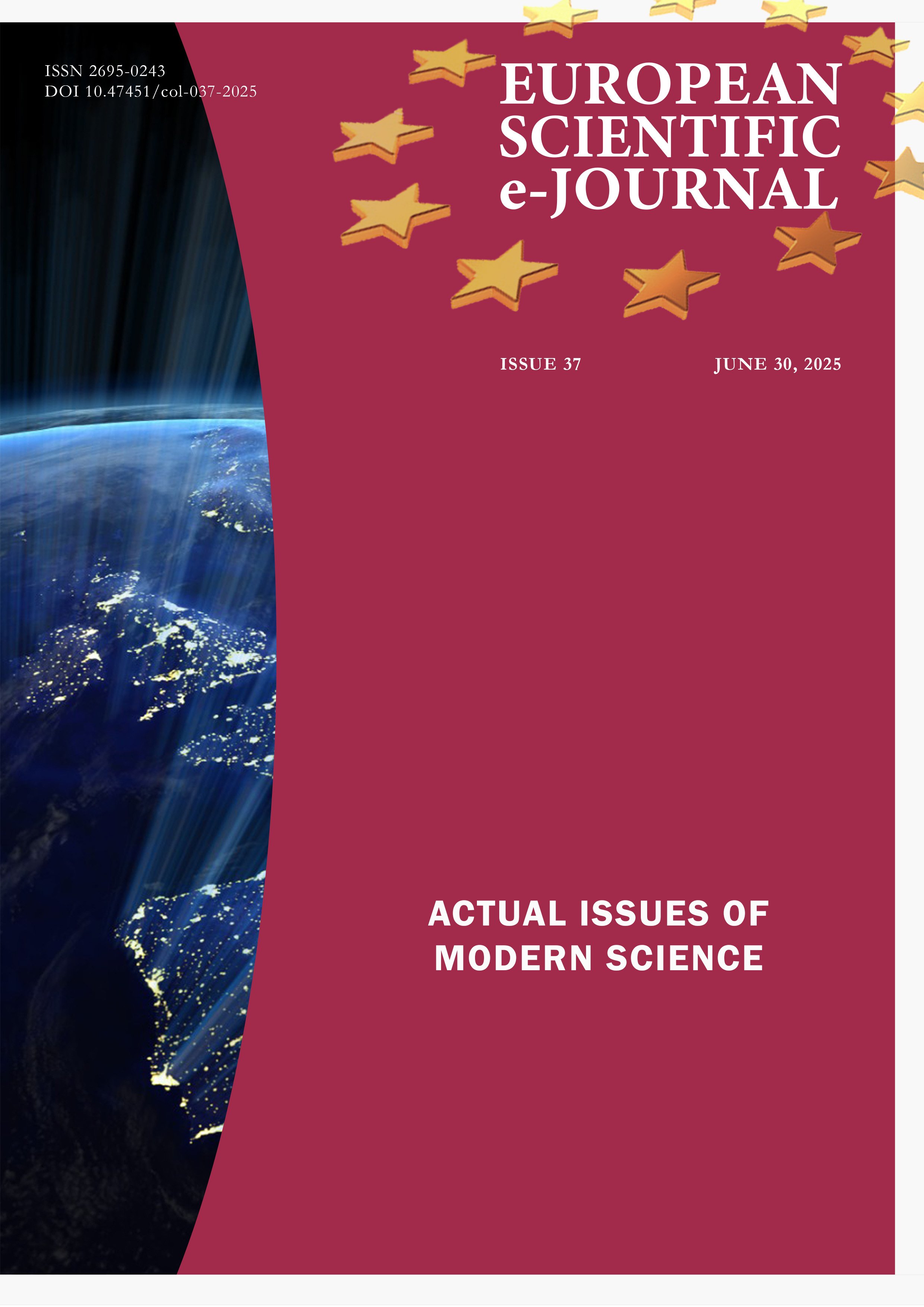Implementation of Innovations in Technologies and Engineering: European Approaches and Opportunities for Ukraine (Case of the Czech Republic)
DOI:
https://doi.org/10.47451/tec2025-09-02Keywords:
innovations, engineering education, European Green Deal, Farm to Fork Strategy, dual training, Czech Republic, digital engineering, R&D sprints, sustainable development, National Qualifications FrameworkAbstract
The article is devoted to the analysis of European approaches to implementing innovations in technologies and engineering, as well as to outlining the opportunities for their integration in Ukraine using the case of the Czech Republic. It is shown that modern engineering education and the agro-industrial sector are undergoing rapid transformations, where digitalization, environmental responsibility, and sustainable development become the key determinants of competitiveness. The European Green Deal and the Farm to Fork Strategy set clear requirements for energy efficiency, emission reduction, supply chain transparency, and the use of «smart» monitoring and management technologies. The study generalizes the Czech experience, where the combination of university training, short industrial R&D sprints, and joint laboratories with businesses ensures rapid knowledge transfer and high employability of graduates. The research methodology is based on comparative analysis of EU and Ukrainian policies and regulatory acts, the use of design thinking for structuring competencies, a logical-structural approach to shaping learning outcomes, and case analysis of university-business partnerships. The article proposes the architecture of an integrated dual model “university—R&D center—production” covering academic, research, and industrial blocks with clear quality indicators. An implementation roadmap (12–18 months) is presented, which includes resource auditing, redesign of educational programs aligned with EQF/NQF, establishment of joint laboratories, international partnerships, and integration of English-taught modules. It is demonstrated that Ukraine’s regulatory framework (EQF/NQF, licensing conditions, Laws «On Education» «On Higher Education» “On Innovation Activity” and the EU–Ukraine Association Agreement) provides the necessary foundation for scaling European practices. The conclusion emphasizes that the key success factors are the modernization of educational programs, continuous dialogue with business, internationalization, and the formation of a culture of measurable outcomes, which will enable the training of a «new wave» of engineers capable of addressing contemporary challenges.
Downloads
References
A Digital Europe Programme 2021–2027. (2021). European Commission. https://digital-strategy.ec.europa.eu
Association Agreement between Ukraine and the European Union, the European Atomic Energy Community and their Member States. (2014). Law of Ukraine No. 1678–VII dated September 16, 2014. (In Ukr.)
Farm to Fork Strategy: For a Fair, Healthy and Environmentally-Friendly Food System. (2020). European Commission. https://food.ec.europa.eu
On Approval of the National Qualifications Framework. (2011). Resolution of the Cabinet of Ministers of Ukraine No. 1341 dated November 23, 2011. (In Ukr.)
On Education. (2017). Law of Ukraine No. 2145–VIII dated September 5, 2017. (In Ukr.)
On Higher Education. (2014). Law of Ukraine No. 1556–VII dated July 1, 2014. (In Ukr.)
On Innovation Activity. (2002). Law of Ukraine No. 40–IV dated July 4, 2002. (In Ukr.)
On Licensing Conditions for Educational Activities. (2015). Resolution of the Cabinet of Ministers of Ukraine No. № 1187 dated December 30, 2015. (In Ukr.)
On the European Qualifications Framework for lifelong learning (EQF). (2017). Recommendation of the European Parliament and of the Council.
Strategy for the Development of Agricultural, Food and Processing Industry Exports of Ukraine until 2026. (2019). Resolution of the Cabinet of Ministers of Ukraine No. 588-р dated July 10, 2019. (In Ukr.)
The European Green Deal. (2019). European Commission. https://eur-lex.europa.eu/legal-content/EN/TXT/?uri=CELEX:52019DC0640
Published
Issue
Section
License
Copyright (c) 2025 European Scientific e-Journal

This work is licensed under a Creative Commons Attribution 4.0 International License.
The European Scientific e-Journal (ESEJ) is an open access journal. Articles are available free of charge as PDF files on the website of the European Institute for Innovation Development. PDF files can be previewed with Acrobat Reader from www.adobe.com.
All articles of the “Tuculart Student Scientific” are published under a Creative Commons Attribution 4.0 Generic (CC BY 4.0) International license.
According to the Creative Commons Attribution 4.0 Generic (CC BY 4.0) International license, the users are free to Share — copy and redistribute the material in any medium or format for any purpose, even commercially (the licensor cannot revoke these freedoms as long as you follow the license terms).
Under the following terms:
- Attribution — You must give appropriate credit, provide a link to the license, and indicate if changes were made. You may do so in any reasonable manner, but not in any way that suggests the licensor endorses you or your use.
- No additional restrictions — You may not apply legal terms or technological measures that legally restrict others from doing anything the license permits.


